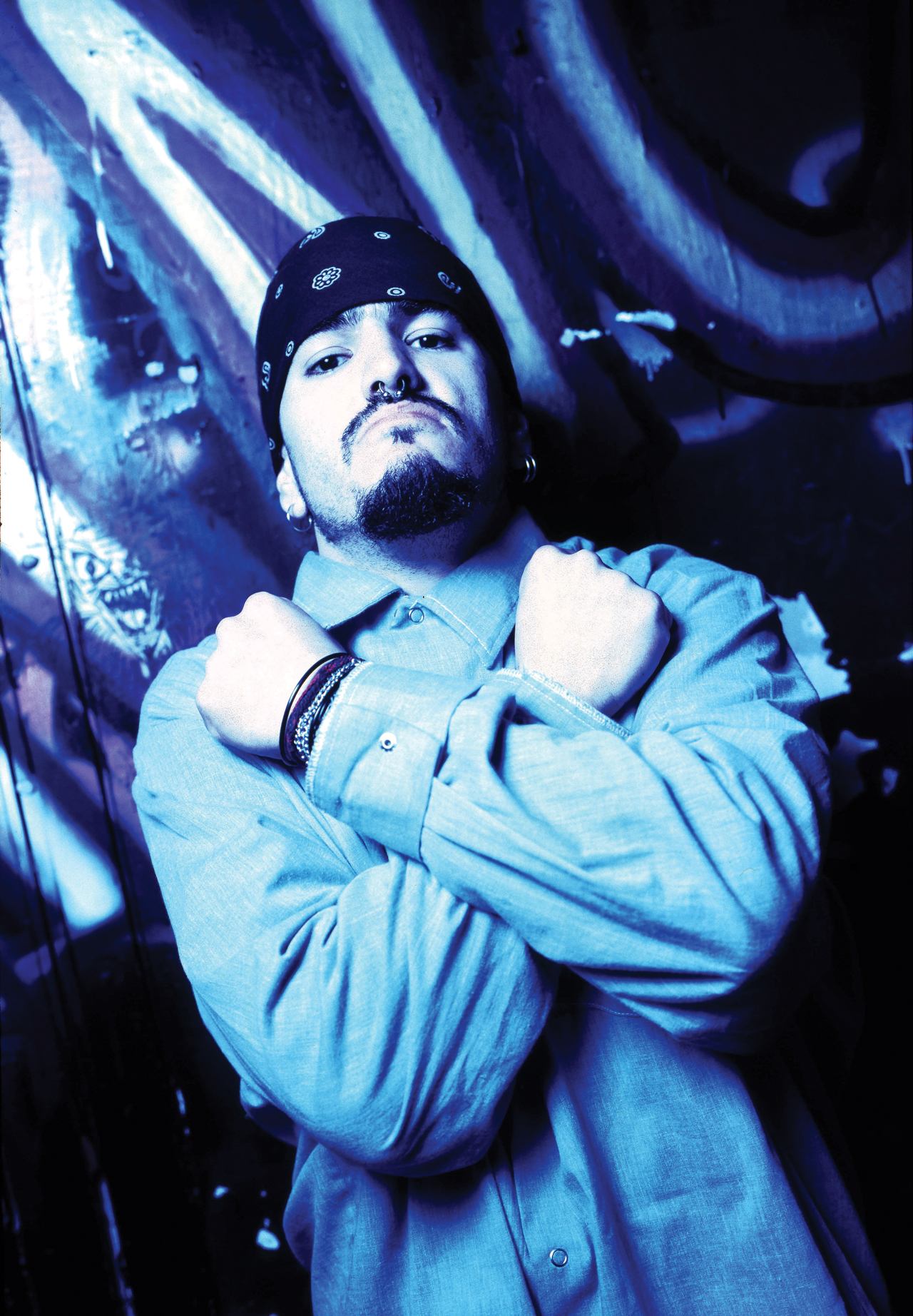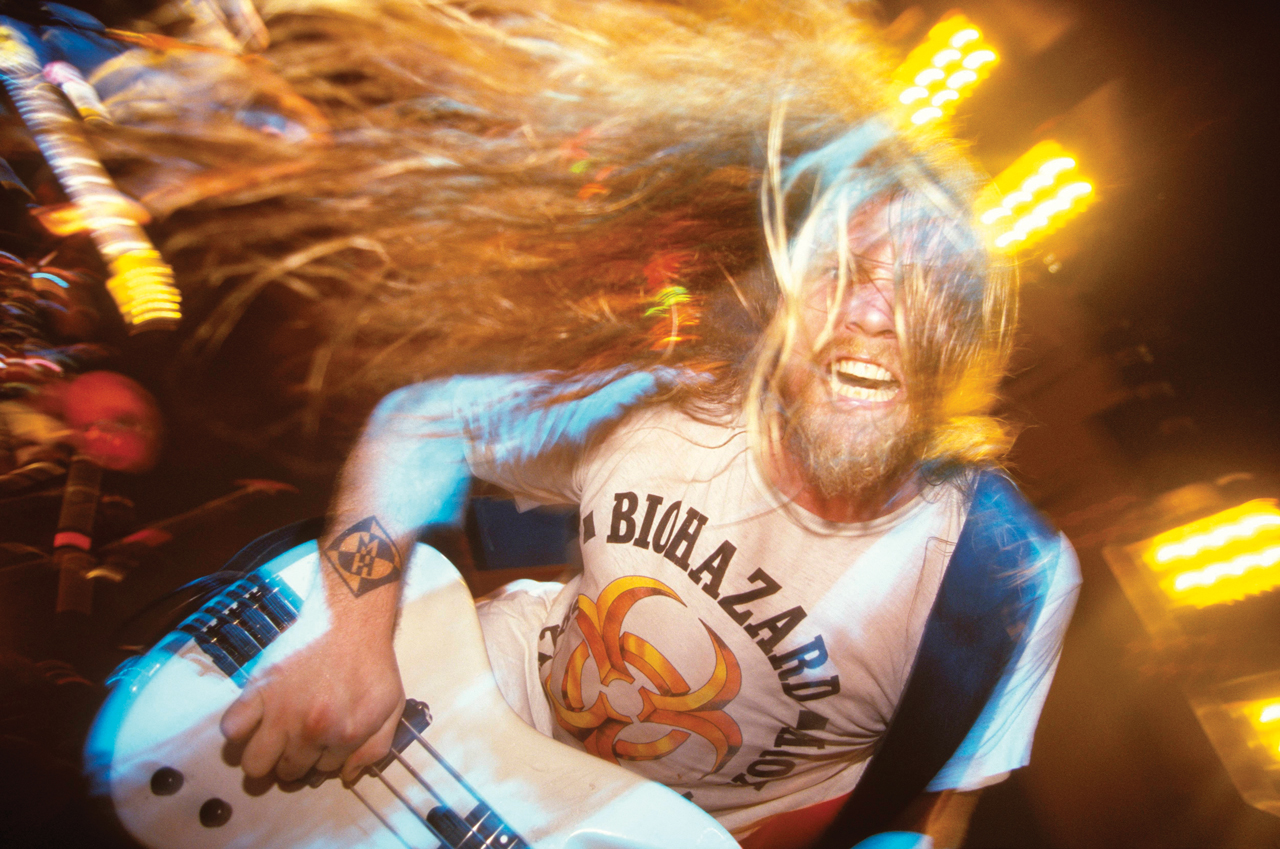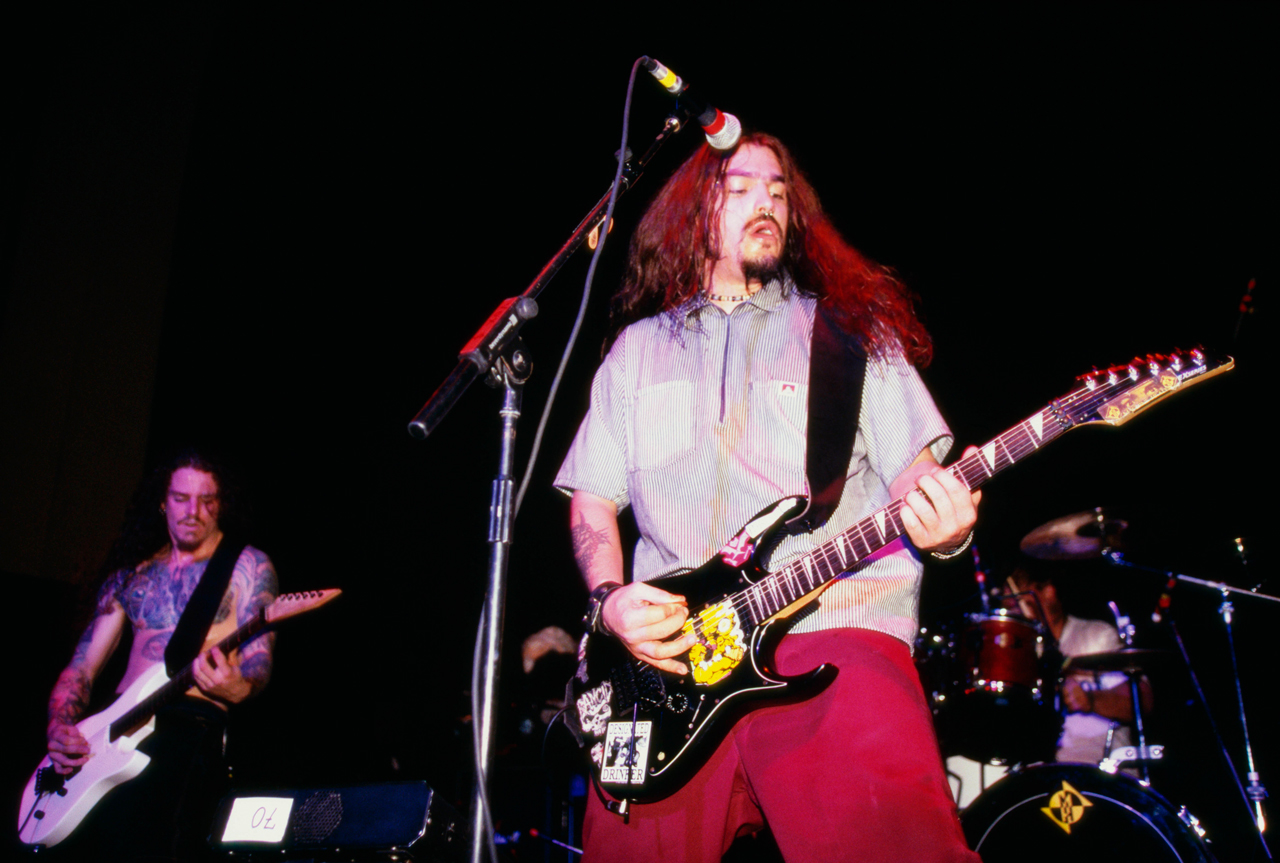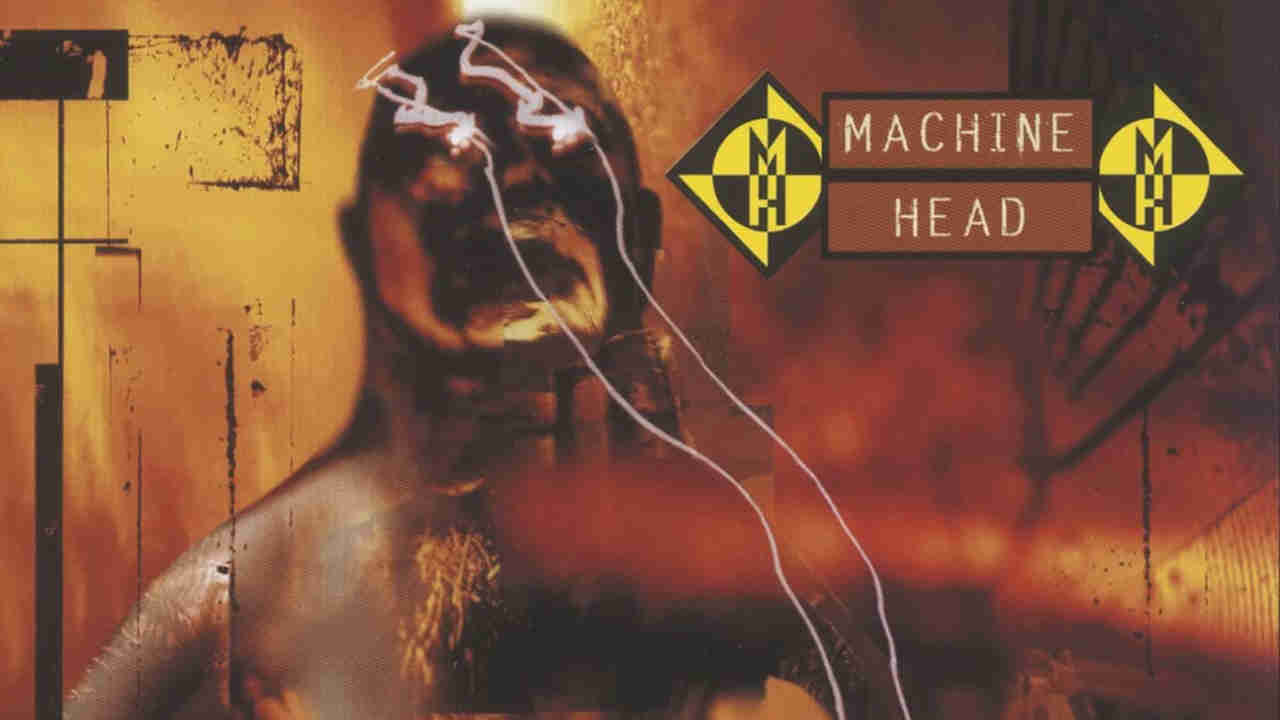"I rode my bike through the riots,” Robb Flynn remembers, thinking back to the disorder that spread across San Francisco’s streets in 1992, sparked by the riots in LA, where more than 50 people would be killed and more than 2,000 injured.
The unrest had begun after the acquittal of four white police officers charged with beating black motorist Rodney King.
“People were fighting police, cars were being lit on fire. Police were trying to chase me down, gang bangers were trying to chase me down, it was crazy, but I just had to feel that chaos, soak it in. I was possessed to be there, and a lot of that intensity came out in Machine Head.”
They’ve become such a permanent, unquestioned fixture in the metal world that it’s easy to forget the monstrous impact of Machine Head’s first album, Burn My Eyes.
Released by Roadrunner Records on August 9, 1994, it was hailed as an instant classic and became the label’s biggest-selling debut ever (an accolade it retained until Slipknot’s breakthrough in ’99).
It was crazy, but I just had to feel that chaos, soak it in
Robb Flynn
With its ground-breaking blend of thuggish grooves, vicious thrash and hip hop bravado, not to mention frontman Robb Flynn’s incendiary lyrics, Burn My Eyes did more than most to redefine metal in the 90s.
In fact, forging a new path for metal was precisely what Robb had in mind when he formed Machine Head as a side-project, while still a member of Bay Area thrashers Vio-lence.
“I love those guys and I loved all the music that we made together, but I was ready for something else in my life,” Robb recalls today.
“So I quit Vio-lence in ’92. Right around that time, Ministry needed a touring guitar player. They were fucking massive at that point, it was the Psalm 69 era. They wanted to hear some stuff and I don’t know why, but I had some chip on my shoulder and didn’t want to send them old music. I wanted to send them new music.”
Robb had already written a handful of new songs, including Death Church, a slow-burning monster that was purposefully distinct from anything he’d written with Vio-lence or his other former band, Forbidden.
With syncopated, grinding riffs redolent of Godflesh and Neurosis, and lyrics that went straight for religion’s jugular, Machine Head already had a strong identity.

Meanwhile, Robb needed help to record his audition for Ministry’s touring guitarist role, so he enlisted drummer Chris Kontos, a veteran of the Bay Area hardcore scene with the likes of Attitude Adjustment and Grinch.
“One of Chris’s bands had a rehearsal place in Oakland, three blocks from where the stab bing incident happened at the gas station [as documented in Machine Head’s Triple Beam, from last year’s Catharsis album].
"So going into this neighbourhood, we were bringing guns, we had hoodies up, just trying to be super-incognito and it was tense! But we got in there and Chris had this high-tech boombox so we could record in stereo, and we just sat and jammed. It was exciting!
"As far as I was concerned, that was it. Chris was in bands that were doing stuff… I was at ground zero… I’m hoping to tour with Ministry… so there was no talk of him joining the band.”
As Robb notes with a wry smile, the call from Ministry never came. Instead, Robb powered ahead with his new band.
Completed by bassist Adam Duce, guitarist Logan Mader and drummer Tony Costanza, with whom Robb wrote several songs that would end up on Burn My Eyes, the first Machine Head line-up set about establishing themselves as a ferocious new force in the Bay Area and beyond.
“Tony got us our first gig in Las Vegas, a club show,” Robb recalls. “We went down to Vegas, played to 40 people and then got wasted! Ha ha!
"After that, we had a couple of things under our belts and right about that time Joey [Huston] became our manager and that’s when things really started happening.”
If Machine Head’s demo hadn’t been enough to convince Al Jourgensen, it certainly grabbed the attention of Roadrunner Records, who signed the band in 1993 before even having seen them play live.
With the likes of Fear Factory, Sepultura, Obituary and Type O Negative on their books, Roadrunner were the perfect home for Robb’s epoch-wrenching take on the metal blueprint: all the band needed was a debut album worthy of their burgeoning reputation.

With Tony Costanza departing and Chris Kontos returning, this time on a permanent basis, Machine Head were ready to deliver the goods on tape.
Recorded at Berkeley’s Fantasy Studios, and produced by legendary metal guru Colin Richardson, Burn My Eyes’ ultra-modern metal anthems perfectly encapsulated both Robb’s intense focus and the self-inflicted chaos of the young band’s lives.
“It was a crazy, intense time. We’d go in and record every day,” says Robb. “The guys were all smoking weed. I was sober because I was so fucking focused on getting shit right.
"But Chris tells this story about how we smoked so much weed that we set off the fire alarms and almost killed everybody with the Halon gas that was going to be released. It sucks all of the oxygen out! Ha ha!”
Twenty-five years on, few fans would dispute the enduring power of songs like Davidian, Block and Blood For Blood.
With enough old-school bite to keep the thrash contingent happy and vast quantities of contemporary punch and invention, Burn My Eyes made a decent fist of uniting the tribes.
The album’s impact was immediate, particularly in the UK and Europe, but until those sales figures rolled in, Robb remained unsure whether the band had a bright future.
We had guns and our hoodies up, trying to be super-incognito
Robb Flynn
“We didn’t think we were going to conquer the world,” he shrugs. “We knew the shit we were playing was super-aggressive and was never going to fly on the radio.
"I wasn’t sitting there thinking, ‘Oh this is going to set the world on fire!’ I just remember trying to make it as heavy, intense, pissed-off, experimental and wild as possible.”
Was he conscious of his sound being genuinely new and groundbreaking? Machine Head got tagged with the Pantera/‘groove metal’ thing, but they never really sounded like that...
“Yeah, that’s something that got stuck with us because Pantera were popular at the time. Did we like Pantera? Of course.
"I’m not gonna say that they weren’t an influence. When we were making Burn My Eyes, I was all about Dimebag’s guitar tone, it was the sickest shit ever! But musically we were coming from a different place.
"We were coming from Metallica and Slayer, we were coming from Neurosis, we were coming from hardcore and rap.
"It was just this confluence of music and passion and drive, in a really intense time in our lives, and it became this crazy mishmash of music that really shouldn’t have worked. No one realised it was possible.
"But we did it and it went on to change stuff. It’s nuts.”

If Machine Head’s music was an unstoppable force, Robb Flynn’s identity as a lyricist was established with similar vigour on Burn My Eyes.
Remorselessly furious but literate and inventive, he wrote about the bloody Waco Siege of 1993 in legendary opener Davidian.
David Koresh, leader of religious cult the Branch Davidians, was holed up in his compound in Texas when a stand-off started between him and the government, who wanted to arrest him on charges of illegal firearms and explosives.
Fifty-one days into the siege, he and almost 80 followers died in a fire following an FBI assault. The FBI maintain they did not start the fires.
Robb wrote about the riots in LA in 1992 in twisted interlude Real Eyes, Realize, Real Lies and album closer Block. Meanwhile, other songs took pointed jabs at religion and political corruption, while slow-burner I’m Your God Now tackled the horrors of drug addiction.
Twenty-five years later, it all seems disturbingly relevant to mankind’s current state of disarray.
When Robb expressed doubts about the lyrics to Davidian (‘Let freedom ring with a shotgun blast!’) after the mass shooting in Vegas in October 2017, it emphasised the edgy, subversive power that Machine Head were wielding back in those early days: this was music born of chaos and rage.
No compromise, no fucks given.
“I feel proud of what I was able to say in those songs,” Robb states. “I don’t want to say it’s political, but songs like Davidian and Block were documenting all the crazy shit that was going on.
"Until then, there was a lot of fantasy stuff in metal and I couldn’t connect with it. Rap and punk rock were still about the streets and protest and anger. Anger, whether it was right or wrong, just spraying it everywhere, is definitely what was getting me off.”
We smoked so much weed that we set off the fire alarms and nearly died
Robb Flynn
As it turned out, a lot of people shared Robb’s proclivity for fury.
Within a matter of months, Machine Head were being talked about as heavyweights, and following a major European tour as main support to Slayer, the band were soon back as headliners.
The rest, as they say, is history – albeit history with a shitload of ups, downs and unexpected detours.
In 2019, Robb is a very different man from the incensed, snotty hooligan who bellowed those Burn My Eyes classics.
But despite being older and wiser, there lingers a sense that if a riot breaks out any time soon, Robb will be on his bike and into the fray before you can say ‘fuck it all’. This autumn, Oakland’s premier riot-starters ride again.
“Think about what would’ve happened if I had got the Ministry gig,” chuckles Robb. “Machine Head may never have fucking happened.
"Life is so crazy like that. Burn My Eyes could’ve been our only chance, so we had to come out swinging and swinging harder than any motherfucker out there.”
Chris Kontos and Logan Mader rejoin Machine Head to play Burn My Eyes in full later this year.

